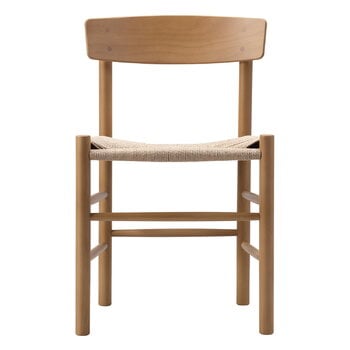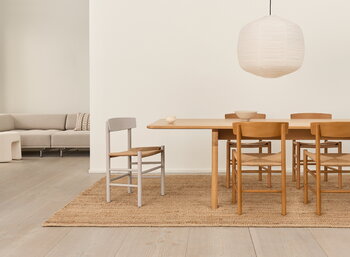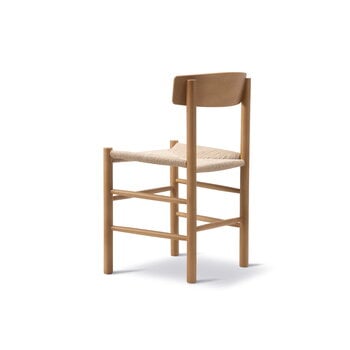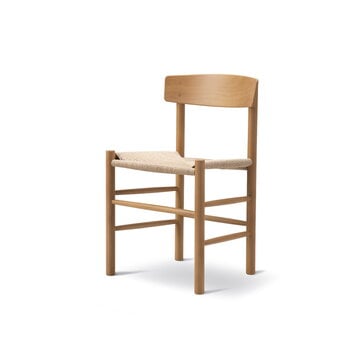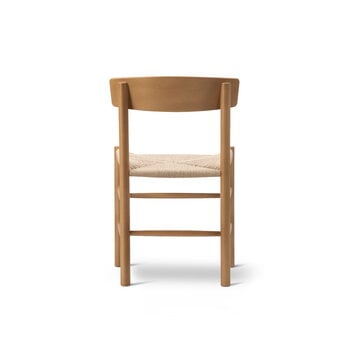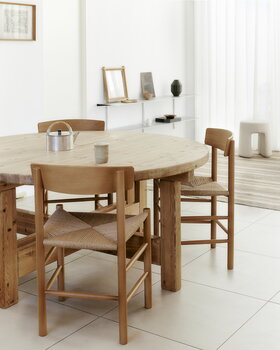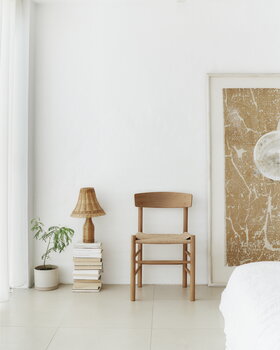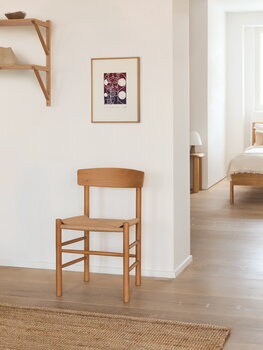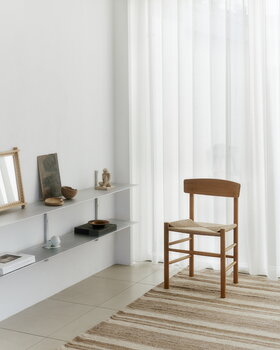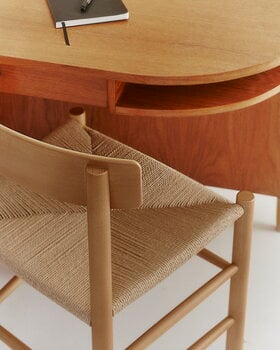Fredericia's J39 chair is a classic of Danish furniture design, created in 1947 by architect Børge Mogensen. A timeless and organic combination of a solid wood frame and a paper yarn seat, the J39 chair works perfectly by a dining table as well as in the living room or office. This chair is made of beech and finished with a lacquer that gives it a gorgeously vintage-y look.
Mogensen designed the chair originally for FDB, the Danish Consumers’ Co-operative Society, which chose Mogensen as its head designer in 1939. FDB’s furniture production started in the 1940s and their main idea was functionalist and democratic design for the people – as the J39 chair gained popularity, it also earned the nickname ‘The People’s Chair’.
